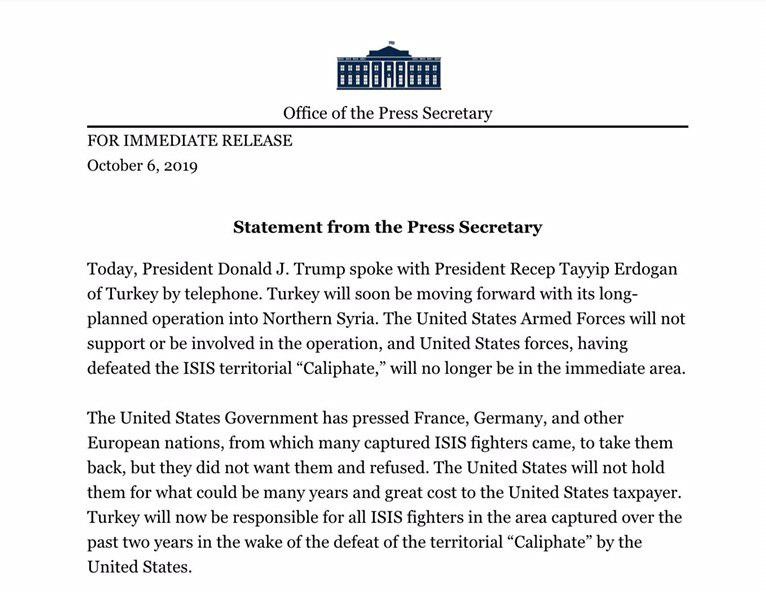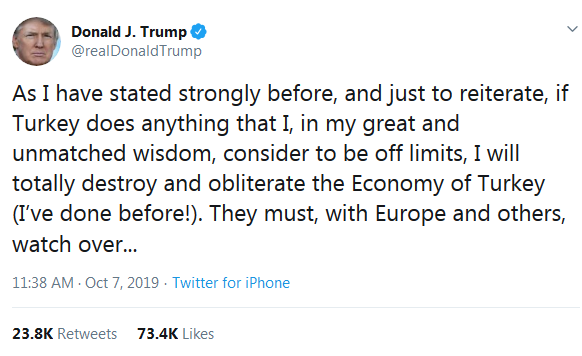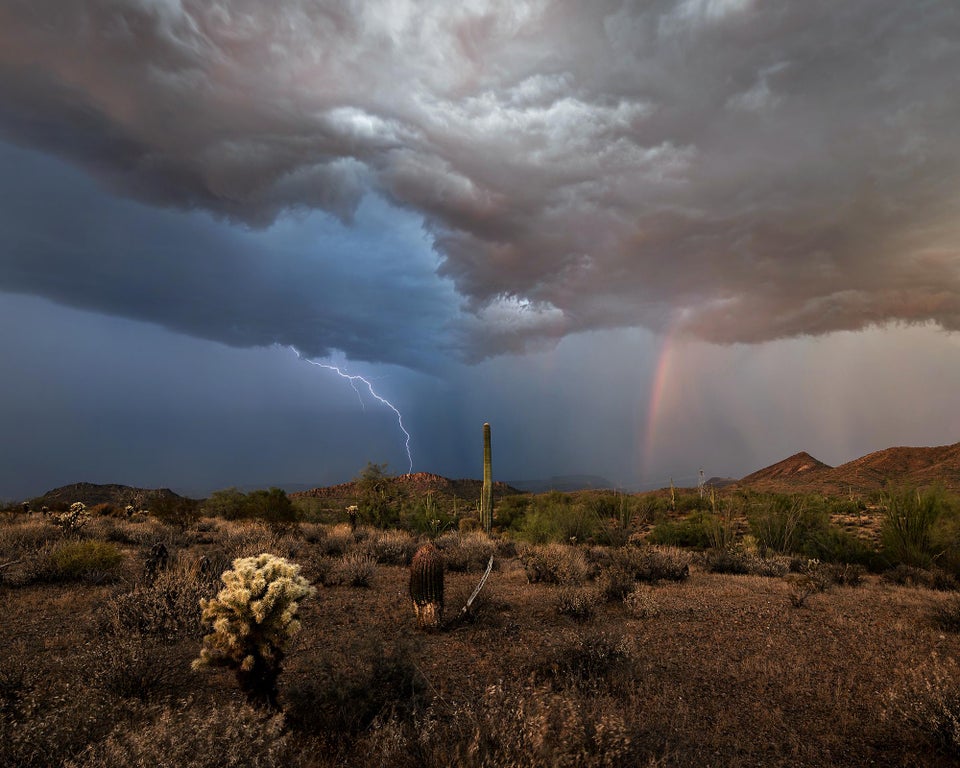The Daily Escape:

Autumn at Kettle Pond, Groton VT – October 2019 photo by tommmmmm
Most Americans haven’t followed closely the Brexit odyssey in the UK. Even if you know only a little, you are probably aware that the UK voted 52% to 48% in a referendum to leave the European Union (EU) in 2016. UK Prime Minister Theresa May then negotiated a divorce agreement with the EU, but that agreement was rejected three times by Parliament.
Then Boris Johnson, also of the Tory Party, became Prime Minister. He’s said the UK would leave the EU with or without an agreement on Brexit. Over the past few days, Johnson seems to have made a new deal with the EU. Here’s a capsule summary of the state of play in England from Market Watch: (brackets by Wrongo)
“Boris Johnson has signed a deal [with the EU] he said he didn’t need, creating a border he didn’t want, under the authority of a Court he didn’t accept, to be submitted to a Parliament he doesn’t control.”
While Johnson is calling this a “new” agreement, 95% of the 293-page agreement is the same as May’s. The changes mostly only apply to the controversial “Irish backstop.” In order to prevent a hard border with customs checks between Northern Ireland and the Republic of Ireland, the original withdrawal agreement stated that the UK as a whole would remain in the EU customs union.
That was a non-starter for the British Brexiteers, who turned it down under May. Under the Johnson deal, the UK will leave the customs union. This will allow the UK to negotiate its own trade agreements outside of the EU.
The catch is that while Northern Ireland will technically be out of the customs union, it will continue to operate under the EU’s customs rules. In practice, this means that goods being sent from Great Britain to Northern Ireland will have to be checked at points of entry. If there’s a chance those goods could be sent on to the Republic of Ireland, or to the EU, duty will have to be paid on them. This concession was necessary to get the Republic of Ireland to agree to the deal. Goods from the EU will pay a duty in Northern Ireland unless they are headed to the Republic.
All this might sound technical, but the deal effectively creates an economic border somewhere in the Irish Sea, separating Northern Ireland from the rest of the UK, something both May and Johnson had vowed never to do. It’s a big concession.
In UK slang, this whole thing might be called a “dog’s breakfast”. In any event, Parliament will convene at 9.30am on Saturday (4:30am EDT) to consider Johnson’s Brexit deal. This is the first time Parliament will have met on a Saturday since the Falklands War.
The session will start with questions of the Prime Minister, followed by a motion to vote on the deal, followed by possible amendments to the deal. It might take all day to actually get to an up or down vote on Brexit. Here’s a helpful diagram:
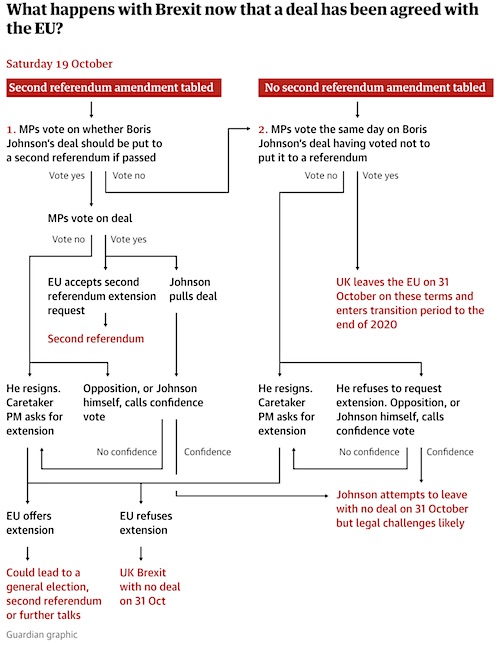
The reality is probably way more complicated than the chart. By striking this deal, Johnson has basically sold out a key ally, the Democratic Unionist Party. The DUP, which controls 10 seats in Parliament, represents Northern Ireland. It strongly opposes any political or economic separation between Northern Ireland and the rest of the UK. That probably makes the new backstop deal a nonstarter for them.
The vote will be close. Whether it passes won’t be known until the actual vote on Saturday.
The only soothing thing Wrongo sees today is that the US isn’t the only dysfunctional Western democracy. You may or may not be interested in following the Brexit happenings in real time, so Wrongo will do that for you.
So today, we’ve gotta get up early to see Members of Parliament yell at Boris Johnson, and that will take some strong coffee. Let’s brew up a mug of Kenyan Rukira coffee ($15/250g.) from the people at Portland, OR’s Coava Coffee. The brewer says it has notes of molasses, currant, pineapple, and kumquat followed by refreshing hints of kiwi and honey. Sounds juicy!
Today we salute Elijah Cummings. He served as a Maryland Congressman since 1996, and was active until he died. He signed subpoenas from his hospital bed, and as recently as last Friday, helped to lead a Democratic caucus conference call. His death is a huge loss for his district, his state, and our country.
Here’s a quote from Cummings:
“When we’re dancing with the angels, the question will be asked, in 2019, what did we do to make sure we kept our democracy intact?”
To acknowledge him, here’s Judy Collins singing “Amazing Grace”:
Those who read the Wrongologist in email can view the video here.


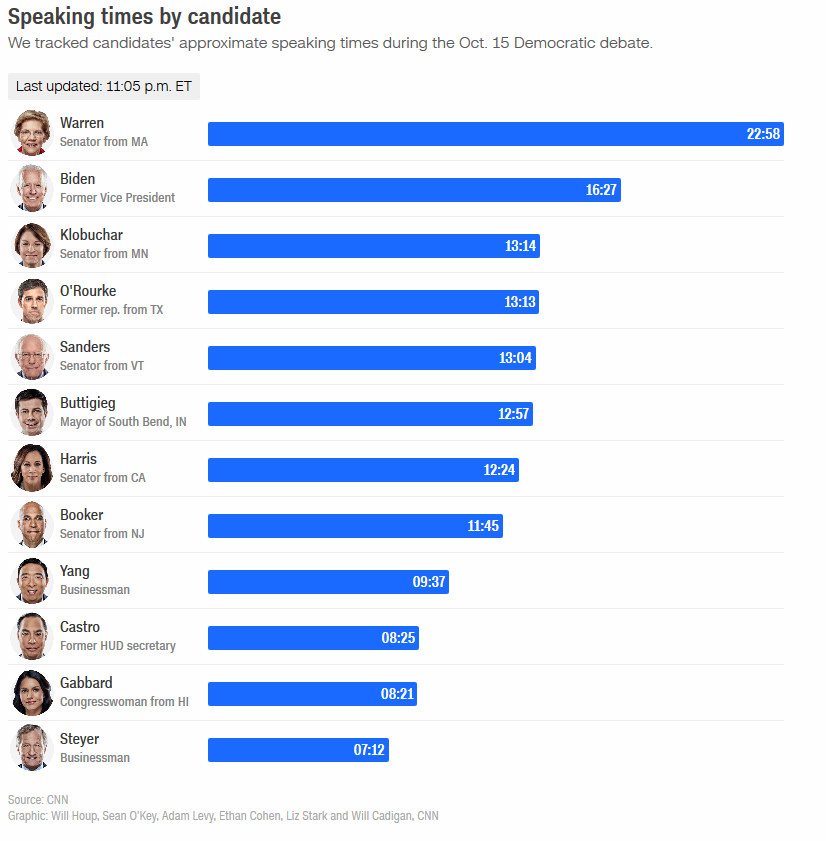
 Lake of the Clouds, Michigan – October 2019 photo by
Lake of the Clouds, Michigan – October 2019 photo by 


